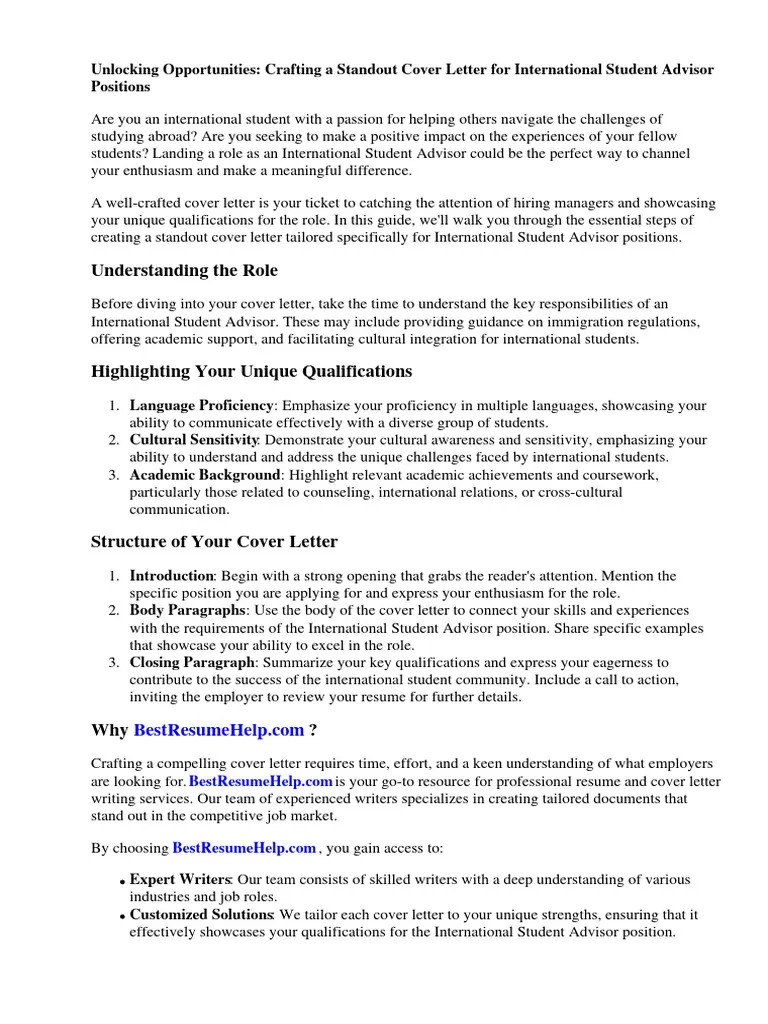Understanding the Study Abroad Cover Letter
A study abroad cover letter is a crucial document that accompanies your application to a study abroad program. It serves as your first impression and provides an opportunity to showcase your personality, motivation, and suitability for the program. Unlike a resume, which lists your accomplishments, a cover letter allows you to explain why you are the perfect fit for the specific program and destination. It’s your chance to demonstrate your genuine interest, connect your past experiences to your future goals, and highlight what makes you unique. A well-crafted cover letter can significantly increase your chances of acceptance and set you apart from other applicants.
Why a Cover Letter is Crucial
The importance of a cover letter for a study abroad program cannot be overstated. It’s more than just a formality; it’s your personal introduction to the admissions committee. It allows you to explain why you’re interested in a particular program, what you hope to gain from the experience, and how it aligns with your academic and personal goals. A compelling cover letter demonstrates your communication skills, writing proficiency, and ability to articulate your aspirations. It also provides a platform to address any potential concerns or gaps in your application, providing context and clarity. By presenting a cohesive narrative, a strong cover letter underscores your preparedness, commitment, and enthusiasm for the study abroad opportunity.
Key Components of a Strong Cover Letter
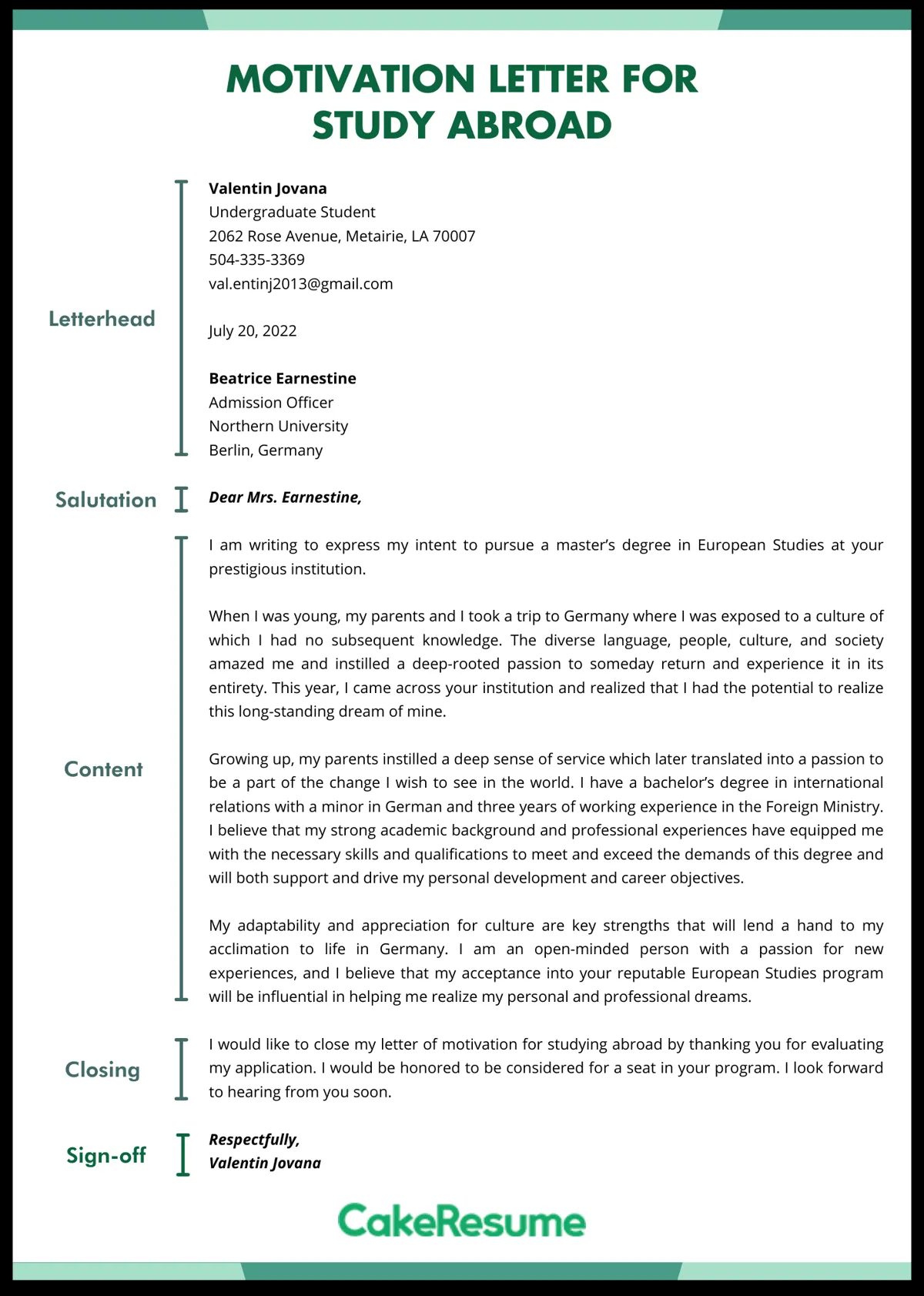
A successful study abroad cover letter comprises several key elements that collectively paint a complete picture of your qualifications and suitability. Each section serves a distinct purpose, contributing to the overall impact of your application. Structuring your letter logically and addressing each element thoughtfully will help you create a compelling narrative that resonates with the admissions committee. Consider each component as a piece of the puzzle, working together to showcase your unique qualities and aspirations for the study abroad program. Pay close attention to the details, ensuring each element aligns with your goals and the program’s specific requirements.
Header and Contact Information
Start with a professional header that includes your contact information. This ensures the recipient can easily reach you. It should contain your full name, address, phone number, and email address. Ensure your email address is professional and appropriate; avoid informal usernames. The header should be clean, organized, and easy to read. Place this information at the top left or right corner of the document. This clear and concise presentation sets a professional tone from the beginning of your cover letter, ensuring that the admissions committee has all the necessary details to contact you.
Applicant’s Personal Information
Your personal information is vital for easy identification. Make sure your name is clearly stated at the top of the header. Include your contact details, such as your phone number and email address, so the admissions team can contact you. Accuracy is key when providing your personal information; double-check to ensure all the details are correct. This section must be easy to read and organized to help the reader quickly identify who you are and how to reach you. Including your personal information shows you’re organized and detail-oriented, key qualities for a study abroad applicant.
Recipient’s Contact Information
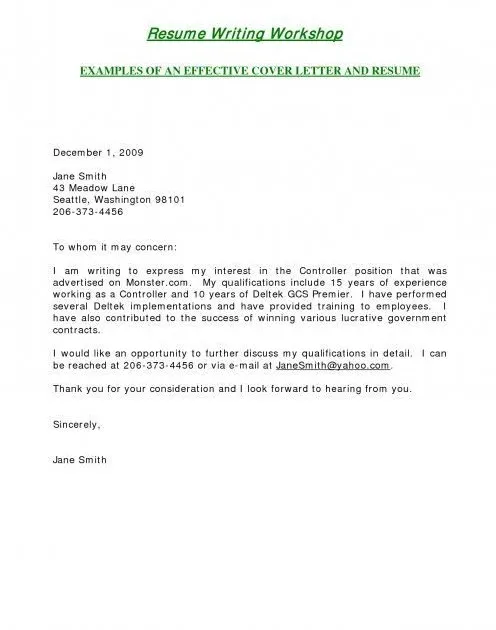
Include the recipient’s contact information, such as the program director’s name, title, department, and the university’s address. Addressing the letter to a specific person demonstrates that you’ve done your research and are attentive to detail. If the name of the program director is unavailable, use a general title, such as “Admissions Committee.” Ensure the recipient’s information is accurate and up-to-date to maintain professionalism. This section shows respect and highlights your attention to detail, which are essential for a successful application to a study abroad program. Proper formatting of this section enhances your letter’s overall polished appearance.
Professional Greeting and Introduction
Begin with a professional greeting, such as “Dear Mr./Ms./Dr. [Last Name]” or “To the Admissions Committee.” In the introduction, state the purpose of your letter, which is to apply for the study abroad program. Briefly mention where you learned about the program and your current academic status. Your introduction should be concise and engaging, capturing the reader’s attention from the start. The greeting sets the tone, and the introduction provides context for the rest of the letter. Maintain a professional and respectful tone throughout your cover letter to make a strong first impression on the admissions committee. The introduction should be clear, concise, and demonstrate your enthusiasm for the program.
Writing Your First Paragraph
The first paragraph should immediately grab the reader’s attention. Clearly state your intent to apply for the study abroad program and express your enthusiasm for the opportunity. Mention how you learned about the program, whether it’s through a university website, a professor, or a friend. Briefly introduce yourself and your current academic standing to provide context. Keep the paragraph concise and focused on the program and your excitement about participating. The first paragraph is your chance to make a strong first impression, so ensure it reflects your genuine interest and motivation for studying abroad. The goal is to hook the reader and make them want to learn more about you.
Expressing Your Interest
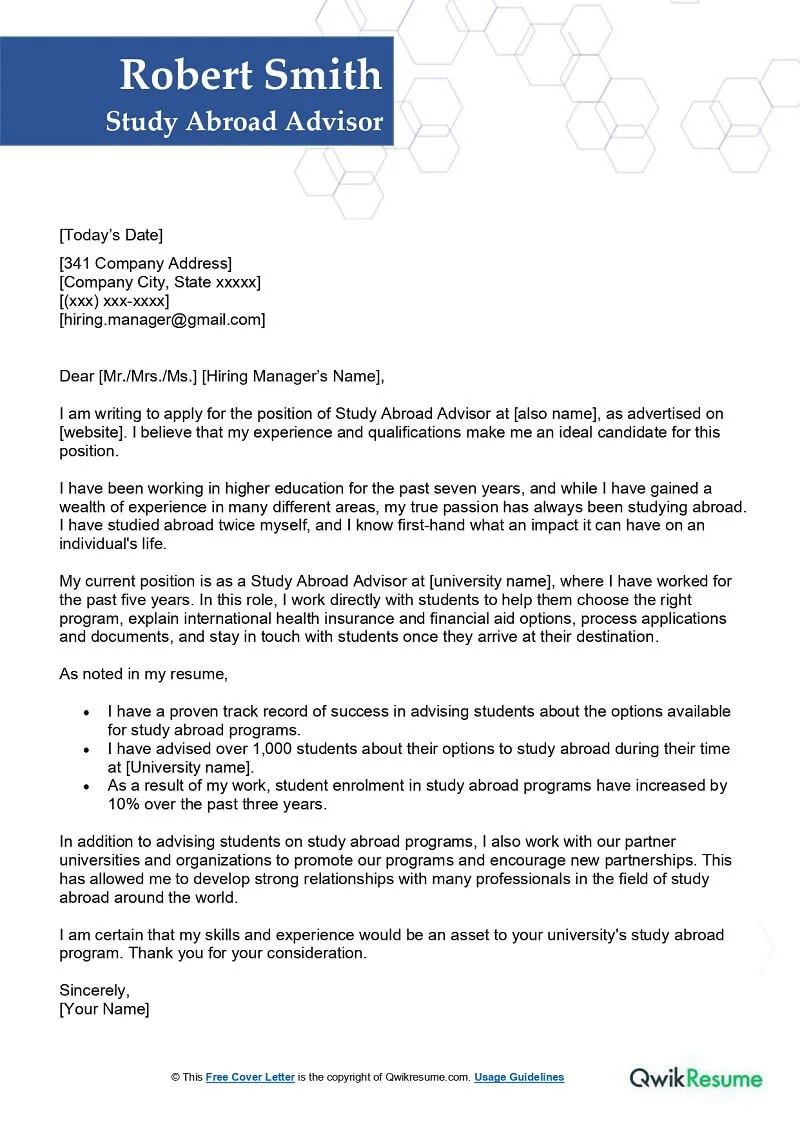
Showcase your genuine interest in the program and the host country. Explain why you are drawn to this specific study abroad experience and what aspects of it excite you the most. This could be the academic curriculum, the cultural immersion opportunities, or the program’s unique offerings. Express your enthusiasm for the program by highlighting specific features that appeal to you. Demonstrate that you have researched the program and understand its goals and objectives. Make your interest genuine by expressing what makes you excited to be a part of the study abroad program. This allows the admissions committee to see your passion and motivation.
Mentioning Your Goals
Clearly state your academic and personal goals for studying abroad. Explain what you hope to achieve during your time in the program, such as improving your language skills, gaining cultural insights, or expanding your academic knowledge. Align your goals with the program’s objectives, showcasing how this experience will contribute to your overall educational and career aspirations. Describe how the program will help you grow as an individual. Ensure your goals are specific, measurable, and relevant to your application. Mentioning your goals will help the admissions committee understand your long-term aspirations and how this program fits into your broader plans.
Highlighting Your Relevant Experience
Provide examples of your relevant experiences, skills, and achievements that demonstrate your suitability for the program. This could include academic accomplishments, extracurricular activities, or work experience. Connect these experiences to the program’s requirements, showing how they have prepared you for this opportunity. For instance, if the program involves language immersion, highlight your language proficiency and any relevant experience, like participating in a language exchange program. Use specific examples to illustrate your skills and achievements. Highlighting your relevant experience allows the admissions committee to see how you are prepared and equipped to succeed in the program.
Showcasing Your Skills and Achievements
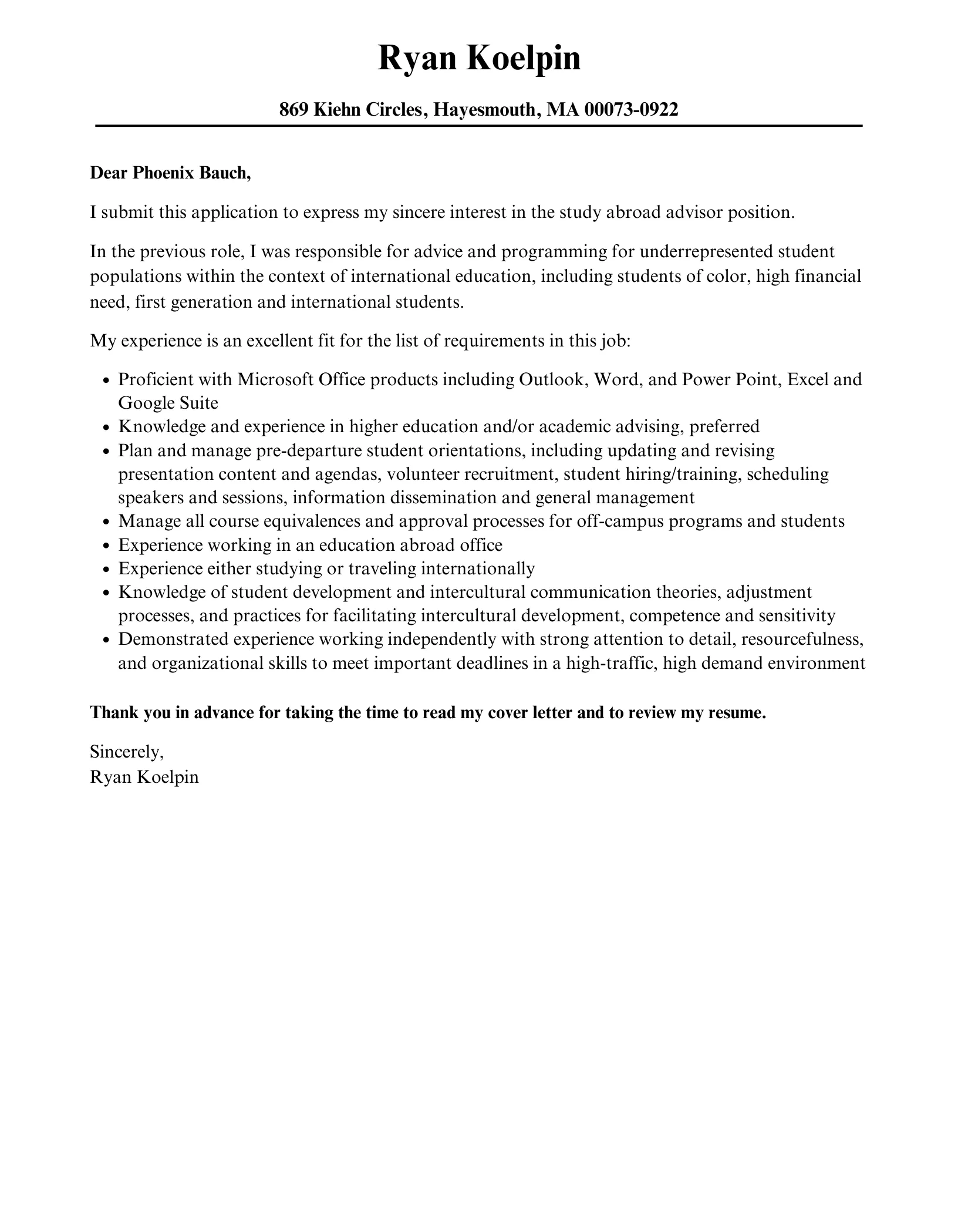
Showcase your academic abilities and personal achievements that demonstrate your readiness for the challenges of studying abroad. Focus on skills and experiences relevant to the program and the host country. Examples include academic awards, projects, leadership roles, or volunteer work. Quantify your achievements whenever possible, such as by specifying the grade point average or the number of hours volunteered. Demonstrating these skills helps prove you have the necessary abilities for the program. Your achievements should directly relate to the program’s goals. This helps the admissions committee understand your capabilities and readiness for the study abroad experience.
Academic Background and Achievements
Briefly summarize your academic background and relevant achievements. Mention your major, GPA, and any honors or awards you’ve received. Highlight courses or projects that align with the program’s curriculum. Provide concrete evidence of your academic abilities, showing you have a solid foundation to succeed in an international academic environment. Your academic achievements should demonstrate your aptitude for the program’s academic rigor. This shows the admissions committee you have a good academic standing and are ready for this opportunity.
Extracurricular Activities and Leadership Roles
Describe your involvement in extracurricular activities and leadership roles. Highlight any experiences that demonstrate your ability to work in diverse teams, your adaptability, or your leadership skills. These activities show your well-roundedness and your ability to engage with different cultures. The admissions committee wants to see that you are active beyond academics and capable of being a leader. This also demonstrates your personal qualities and ability to make the most of a study abroad experience. Mentioning extracurricular activities and leadership roles enhances your application by illustrating your commitment to personal development and community involvement.
Language Proficiency and Cultural Awareness
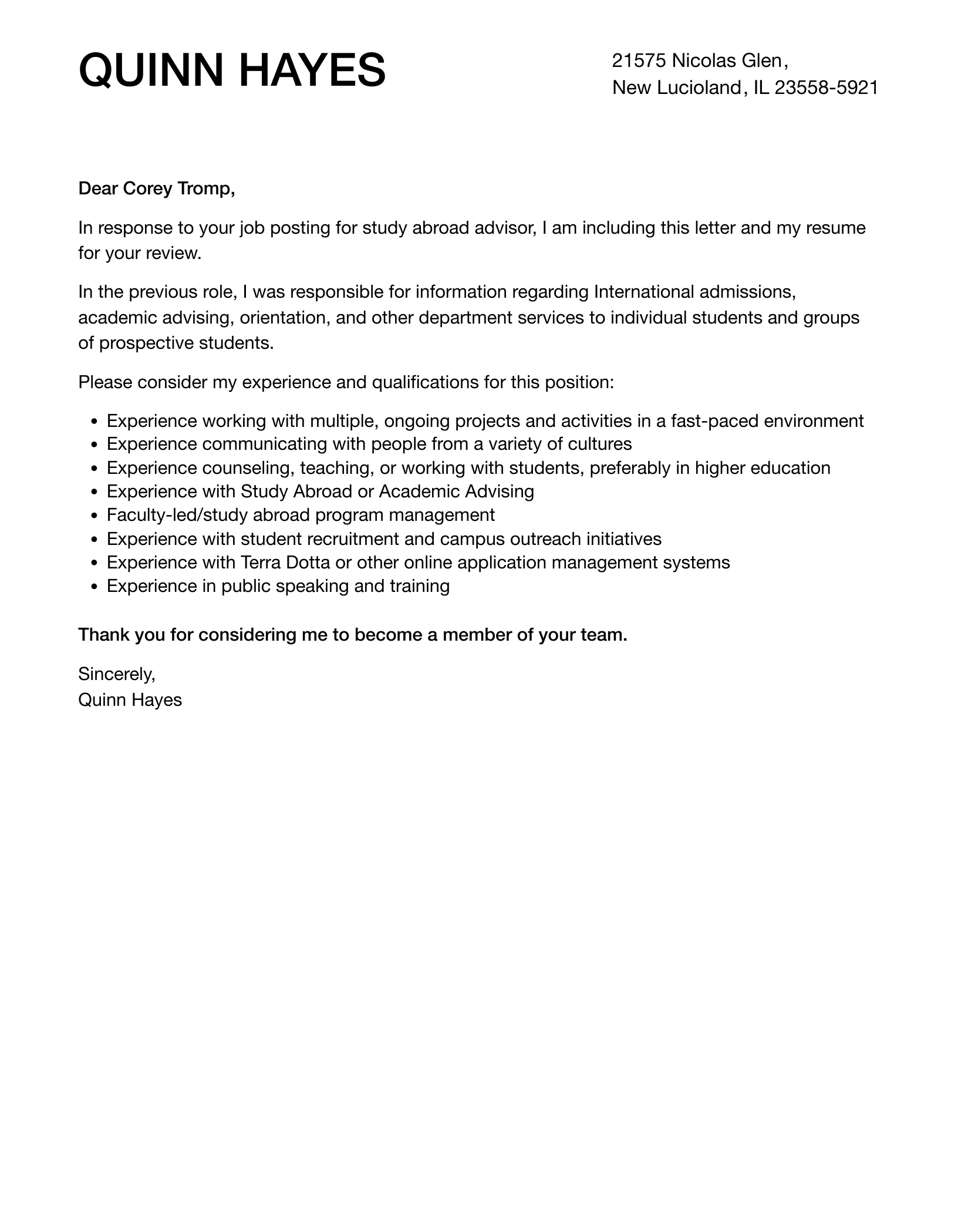
Highlight your language proficiency and cultural awareness, particularly if they are relevant to the host country. Mention any language courses you’ve taken, any language certifications you’ve earned, or your proficiency level. Describe any experiences that have broadened your cultural understanding, such as travel, interactions with international students, or participation in cultural events. Demonstrating language skills and cultural awareness underscores your readiness to embrace the challenges and opportunities of studying abroad. This is vital for successful integration into the new culture and environment. Showcasing these skills demonstrates your ability to adapt and thrive in a new culture.
Demonstrating Your Motivation for Studying Abroad
Clearly express your motivations for wanting to study abroad. Explain why you are drawn to this experience and what you hope to gain from it. Share your personal reasons for wanting to study abroad, such as a desire to broaden your horizons, challenge yourself, or experience a different culture. Demonstrate your genuine interest in the program and the host country, which should be authentic and compelling. This helps the admissions committee understand your enthusiasm and commitment to the program. Make sure your motivations are specific, personal, and aligned with the program’s goals and objectives.
Connecting Your Goals with the Program
Connect your personal and academic goals to the specific program. Explain how this study abroad experience aligns with your aspirations and how it will contribute to your long-term plans. Highlight how the program’s courses, research opportunities, or cultural immersion activities will help you achieve your objectives. Showcase your understanding of the program’s unique features and explain how they will help you grow. This connection shows that you have carefully considered your goals and chosen the program strategically. Demonstrate that this program is a critical part of your academic journey, enhancing your application’s overall appeal.
Expressing Enthusiasm for the Destination
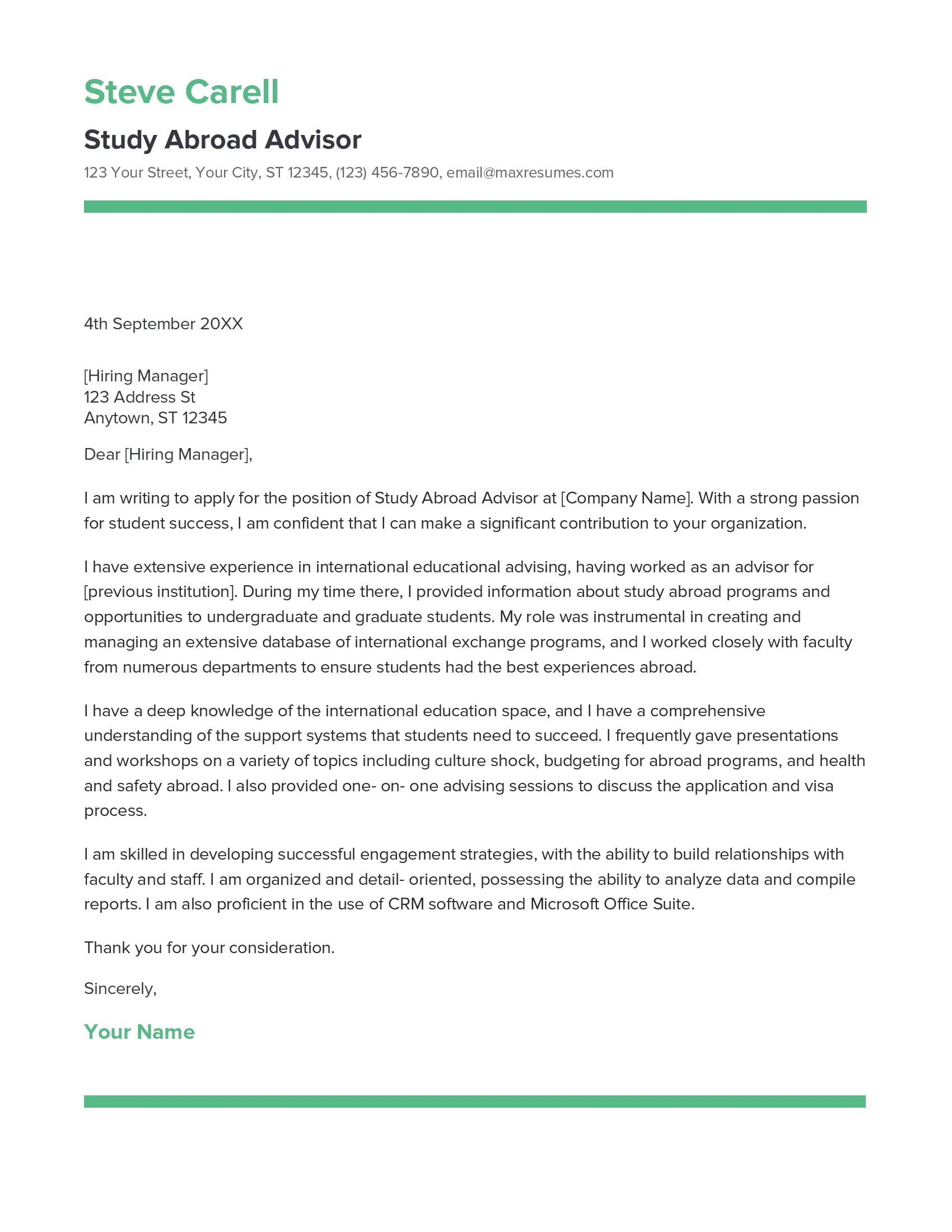
Express your enthusiasm for the host country and its culture. Research the destination and mention specific aspects that attract you, such as historical sites, cultural traditions, or unique learning opportunities. Show you have a genuine interest in experiencing the local culture. It’s important to show your research and understanding of the destination. Demonstrate that you have researched the country and have a strong desire to immerse yourself in its culture. Expressing genuine enthusiasm for the destination increases the impact of your cover letter and makes it more engaging.
Why This Program Fits You
Explain why this particular program is the best fit for you. Highlight the specific aspects of the program that align with your interests, goals, and academic background. Mention specific courses, research opportunities, or cultural activities that appeal to you. Show how this program is uniquely suited to help you achieve your objectives. Demonstrate that you have carefully considered your options and chosen this program intentionally. Emphasize why the program aligns with your aspirations, making your application stand out. Tailor your letter to the program’s specifics.
Addressing Program Requirements
Address any specific requirements or questions the program application asks. Ensure that your letter meets all the requirements. If the program has specific prompts or questions, address them directly. Ensure your cover letter fulfills all the requirements. Failure to address requirements can lead to your application being overlooked. Directly addressing the requirements shows that you pay attention to detail and that you are following instructions. This demonstrates your commitment and attention to detail, which are critical qualities for a study abroad candidate.
Elaborating on Specific Requirements
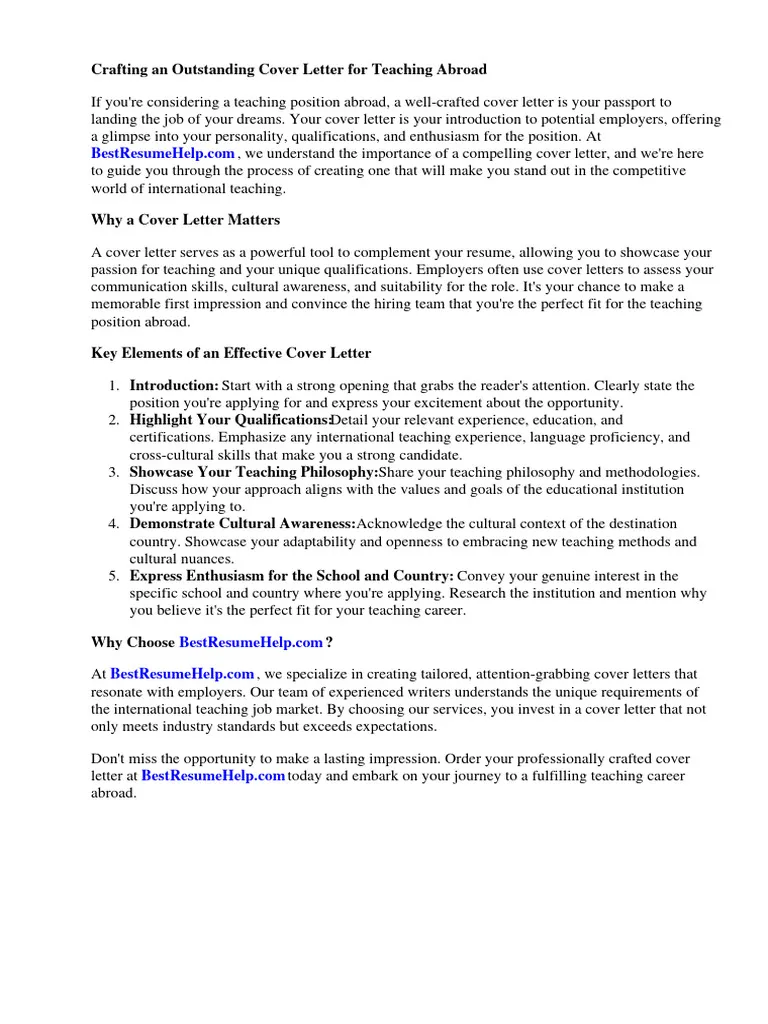
Elaborate on any specific requirements or application prompts. Provide detailed responses to any questions or essays. Use specific examples and experiences to support your answers. Take this opportunity to provide additional context, ensuring you answer the questions thoroughly. Demonstrate your ability to communicate and express yourself through detailed responses. Make sure you have answered all the questions and prompts, and included all necessary information. By thoroughly addressing specific requirements, you demonstrate that you are capable of following instructions and are prepared for the challenges of studying abroad.
Highlighting Your Research and Preparation
Demonstrate that you’ve thoroughly researched the program and the host country. Show that you’re informed about the program’s curriculum, cultural activities, and resources. Mention any information you’ve gathered from the program’s website, brochures, or other sources. This will demonstrate your genuine interest and preparedness for the study abroad experience. Highlighting your research helps the admissions committee see your proactive approach to the program. Research indicates you’re serious about the program. Presenting your knowledge shows your understanding of what you are getting involved in.
Ensuring a Compelling Closing
Conclude your cover letter with a strong and memorable closing. Express your enthusiasm for the opportunity and reiterate your interest in the program. Your closing statement should leave a positive and lasting impression on the admissions committee. The closing is as important as the opening, so make it count. End with a compelling statement of your commitment and your desire to participate. The closing should summarize the key points, reinforcing your suitability for the program. A well-crafted closing can significantly increase the positive impact of your application.
Reiterating Your Interest and Gratitude
Reiterate your interest in the program and express your gratitude for the opportunity to apply. Thank the admissions committee for their time and consideration. Briefly summarize your key qualifications and your enthusiasm for the program. This should reinforce your commitment to the program. A sincere expression of gratitude and a concise summary of your qualifications can strengthen the overall impression. Your closing shows the admissions committee that you are grateful for the chance to apply.
Offering Further Information or Clarification
Offer to provide any additional information or clarification the admissions committee may need. Provide your contact information again, making it easy for them to reach you. Conclude with a professional closing, such as “Sincerely” or “Best regards,” followed by your full name. This demonstrates your willingness to assist the admissions committee. The final contact information and closing ensure your application leaves a polished, professional impression. It signifies your readiness and professionalism.
Proofreading and Editing Your Cover Letter
Proofread your cover letter carefully for any grammatical errors, typos, or inconsistencies. Ensure your letter is well-written, clear, and concise. Ask a friend, family member, or professor to review your letter for feedback. Thorough proofreading can significantly improve your application. Mistakes can detract from your message and give the impression of carelessness. Correct all errors and ensure that your letter is free of grammatical and spelling mistakes. This is important to ensure a professional, error-free final product.
Formatting and Style
Use a professional and consistent format for your cover letter. Choose a clear and readable font, such as Times New Roman or Arial, with a font size between 11 and 12 points. Use single-spaced lines with one-inch margins. Organize your content with clear headings, paragraphs, and bullet points. Ensure that the layout is easy to read and visually appealing. Formatting enhances readability and gives a professional impression. A well-formatted document shows you’re detail-oriented, helping you make a positive impression on the admissions committee. This will help your letter look polished and professional.
Common Mistakes to Avoid
Several common mistakes can undermine your study abroad cover letter. Being aware of these errors and taking steps to avoid them will improve your application. These include using unclear language, ignoring program instructions, and relying on clichés. The following section offers guidance to help you avoid these pitfalls and craft a compelling cover letter.
Unclear or Vague Language
Avoid using unclear or vague language in your cover letter. Be specific and provide concrete examples to support your claims. Avoid generic statements and clichés. Instead, demonstrate your skills, experiences, and motivations through specific examples. Vague language weakens your application. Use clear and precise language. Show the admissions committee you’ve thought carefully about the program. By providing specific and well-defined details, you effectively showcase your qualifications and make your cover letter more impactful. Using clear and concise language helps the reader understand your points easily.
Ignoring Program-Specific Instructions
Always follow the program’s specific instructions. Review the application guidelines carefully and address any specific prompts or questions. Failing to follow instructions can lead to rejection. Pay close attention to the program’s requirements and tailor your letter to meet them. Ignoring instructions can give the impression of not paying attention to detail. Make sure to answer all the questions asked, and fulfill all requirements. By demonstrating that you have adhered to the program’s instructions, you showcase your commitment and attention to detail, which are crucial for a successful application.
Overusing Jargon or Clichés
Avoid using jargon or clichés in your cover letter. These can make your letter sound generic and insincere. Instead of relying on overused phrases, use your own words and express your thoughts authentically. Refrain from using phrases that are common and lack originality. Write in a natural and engaging tone. Using authentic language ensures your unique qualities are highlighted. Make sure your voice is genuine. By avoiding jargon and clichés, you ensure your cover letter is original and personalized, demonstrating your authentic personality and enthusiasm.
Finalizing and Submitting Your Cover Letter
Before submitting, carefully review your cover letter one last time. Ensure all information is accurate and that the formatting is correct. Proofread the entire document to catch any errors. Be sure to adhere to the program’s submission guidelines. Submit your cover letter and supporting documents on time. The final submission is as important as the writing of the letter. A well-prepared and carefully submitted application makes a strong impression.
Reviewing and Submitting
Before submission, carefully review your entire application package. Ensure all documents are included and that they are in the correct format. Double-check the contact information, and make certain your application is complete. Submit your application by the deadline, and always keep a copy for your records. A meticulous review shows you have attention to detail. Submitting a complete and accurate application shows your dedication and organization, greatly increasing your chances of acceptance. Preparing and following these steps ensures a polished and successful application.
Additional Resources and Tips
Utilize additional resources to enhance your cover letter. Seek feedback from professors, career counselors, or writing centers. Research sample cover letters for study abroad programs for inspiration. Tailor your cover letter to each program. By using available resources, you can elevate the quality of your application and enhance your chances of success. Additional tips can assist you in presenting the best version of your application. The resources available will help you improve your letter. Consulting these resources ensures you are prepared to write a strong, effective cover letter.
